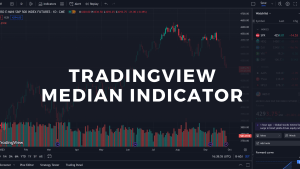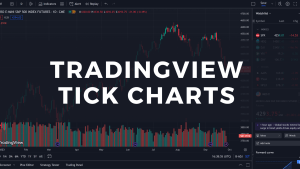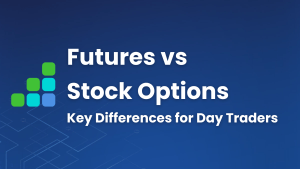This article on best day trading age is the opinion of Optimus Futures.
- Is there an ideal time to begin learning how to day trade the markets?
- Should traders and investors take a more conservative approach the older they get?
- Age may or may not be a significant factor when it comes to trading success.
If you’re a young trader, you may be more capable of taking on more risks, but you’re not necessarily equipped to identify the smarter risks among the ones you can take.
You may have less capital to work with than someone who’s older and more established in the workforce, but having more capital isn’t necessarily the key to greater returns, as it can easily bring an equivalent amount of losses if not more (especially if you’re day trading futures).
So, is there such a thing as the “best day trading age”? This is a question we’re going to explore.
A Tragic Story About Youth, a Glitch, and Misfortune
In early February 2021, a 20-year-old trader decided to place a complex options trade using a brokerage platform that was geared toward attracting young traders and investors. Like all trades, his options trade carried inherent risks. In actuality, the risks were multiplied–not by the trade itself, but by his lack of understanding in the area of options pricing mechanics.
A technical glitch occurred, and an automated message via email was sent out by the brokerage firm informing him not only that trading restrictions have been placed on his account, but that he owed $750,000–three-quarters of a million dollars. The brokerage was expecting a hefty fraction of the amount as payment within three days.
Unable to reach a customer representative by phone, the trader thought his life had virtually ended. He made it so, taking his own life later that day. Three days later, he received an email stating that his trading issue had been resolved and that he didn’t owe anything. It was a glitch. And for that, coupled with his inexperience and inability to understand what had happened, he lost his life. All for nothing.
An Age to Trade Where Speed and Profits Disastrously Conflate
There’s an irony to young traders rushing to make profits. Not only should you never rush to make a profit no matter how old you are, young traders, by virtue of their relative youth, have the least reasons to be in a rush (as opposed to a person in her 50s trying to maximize a retirement account).
The youthful appeal for anything fast–whether it fast cars, fast dates, a fast career trajectory, or fast money–seems to attract younger traders to trading strategies or momentum assets exhibiting speed: think about the current trend toward meme stocks and cryptocurrencies. It’s about making that one large bet hoping to see its valuations launched to the sky.
We can only assume that “speed” and hype take precedence over fundamental value and financial wisdom: a dangerous mistake if you approach such a speculation heavy-handedly.
In the case of the 20-year old trader in the example above, it was about the speed by which a strategy can generate profits using an instrument that he didn’t fully understand. He also went into it in an over-leveraged manner, perhaps also unknowingly. That was a fatal mistake.
Age and Experience vs the Capacity to Learn and Adapt
When it comes to speculating in the financial markets, many traders and investors don’t realize that they, themselves, are their own biggest risk factor.
So, when it comes to trading, experience, regardless of age, can make a big difference. But the capacity to learn from experience doesn’t always go with age. There are many traders who have lived decades trading poorly, never making it through the necessary stages of becoming a competent trader.
Discipline Knows No Age and Doesn’t Always Need Experience
Do you remember the kind of risk-taking behavior you exhibited back in middle school, high school, or early on in college? Remember how (hopefully) less foolish those risks became as you got older? Perhaps you were among the more risk-averse who wouldn’t have taken risks that yielded more negative to positive outcomes.
Whether it’s nature or nurture, some people just exhibit more disciplined or risk-seeking behavior at an earlier age. Given the risks you’ll have to take in life–whether it’s asking a person out on a date, asking your boss for a raise, starting your own entrepreneurial venture, or deciding to day trade futures–staying disciplined, keeping a cool head, and having the capacity to weigh positive against negative payoffs is always a big plus.
Pros and Cons of Being a Younger Trader
The factors that may determine trading success and failure–namely, knowledge, skill, experience, and capital resources–are conditional and flexible. Time is the one critical resource that’s not flexible, meaning, you can never get it back.
So, when it comes to trading in relation to time and age, there are a number of advantages and disadvantages that come with an early starting point.
The Pros of Trading at a Younger Age
- The earlier you start your trading pursuits, the more time you’ll have to learn and correct your trading mistakes.
- Younger traders may be more comfortable with technology, and trading technologies do require a certain level of tech-savviness.
- Younger traders have the opportunity to build a solid trading foundation based on sound market principles and financial discipline.
- Most young traders who are single can focus on their efforts without the additional burden of helping provide for a family which may reduce risk capital.
As you can see, the biggest advantage the younger trader has is time.
How a trader uses that time is what determines whether or not time was an advantage.
The Cons of Trading at a Younger Age
- It’s a given that as a younger trader you lack experience and wisdom.
- While this is a natural part of the process, the danger that younger traders might introduce to the process is impatience and indiscipline (which doesn’t have to be the case but often is).
- Fortunately, younger traders often have less capital than they might have at a later age.
- But the risk of going debit can be severe for a younger trader who may be at the lower end of the income bracket.
- Last but not least, younger traders can be impressionable and easily swayed by bad trading advice (think certain “meme” stocks or cryptocurrencies where less agile or experienced traders lost a great amount of money).
The Aggressive Versus Conservative Approach By Age is a Half-Lie
Common investment wisdom says we should be more conservative the older we get and hold more bonds than stocks. History has shown that those who hold more stocks than bonds, or all stocks rather than bonds–a much more aggressive approach defying popular investment wisdom–tend to outperform those who loaded up on fixed-income heading into the retirement red zone.
And while such advice might encourage younger “investors” to be more aggressive in their allocations, those who do “trade” for short-term gains, whether swing trading or day trading, tend to waste their money, especially when they blow up their accounts.
The advice here would be to slow down…significantly. Aggressive shouldn’t mean reckless. A calculated trading risk shouldn’t be the same as a gamble.
The Bottom Line: It’s What You Do with Your Time That Matters
There is no “best” day trading age–you can succeed or fail at any age. There are as many young traders who blow up their accounts as there are older traders who’ve been trading for decades.
Many of the older traders who constantly fail in the markets have either fallen into bad habits when trading, don’t have enough resources to trade successfully, remain ignorant of their own flaws, or have adopted a trading approach that doesn’t match their personalities, inherent skills, and circumstances (e.g., they might have made better swing traders than day traders, better stock options traders than futures traders, etc.).
There is no “futures trading” age that is ideal. Leverage not only amplifies profits and losses, it also amplifies your skills and flaws. Successes and failures abound, distributed across every age and level of experience. So, take great care when using leverage in your trades. And remember that all futures trading is leveraged trading.
You can learn to become a solid futures trader within any period from a few months to a few years. It really depends on the soundness of the system you adopt and the quality of your discipline, execution, and ability to adapt to changing market or economic circumstances.
Trading opportunities are conditional, constantly in flux, and always present. The quality of your trading knowledge is conditional (to the markets and economy), often in need of adjustment, and never guaranteed.
Neither age nor time are determinants of success. What you do with your time in the market is everything.
Trading futures and options involve substantial risk of loss and are not suitable for all investors. Past performance is not necessarily indicative of future results.
















